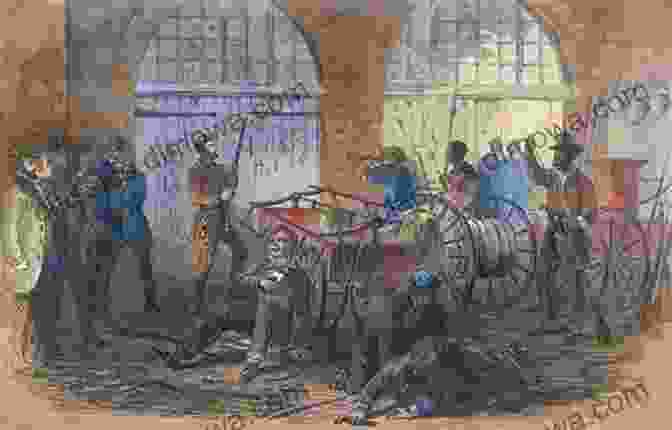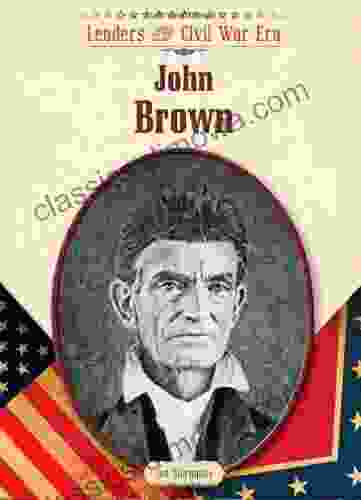John Brown: A Complex and Controversial Figure
John Brown was a passionate abolitionist who played a pivotal role in the events leading up to the American Civil War. His unwavering determination and controversial tactics ignited both admiration and outrage during his lifetime and continue to be debated to this day.
4.6 out of 5
| Language | : | English |
| File size | : | 3199 KB |
| Text-to-Speech | : | Enabled |
| Screen Reader | : | Supported |
| Print length | : | 144 pages |
Born in Connecticut in 1800, Brown spent his early life in a devout religious environment. However, his experiences on the frontier and his firsthand encounters with slavery transformed him into a radical activist.

Abolitionist Activities and the "Bleeding Kansas" Conflict
Brown became deeply involved in the abolitionist movement and relocated to Kansas Territory in 1855. The territory was a battleground for pro-slavery and anti-slavery forces, and Brown emerged as a prominent figure in the fight against the spread of slavery.
In the infamous Pottawatomie Massacre of 1856, Brown and his followers killed five pro-slavery settlers in retaliation for the murder of an anti-slavery activist. This event further escalated tensions in the region, earning Brown the reputation of a ruthless and violent abolitionist.
Timeline of Key Events in John Brown's Life
- 1800: Born in Torrington, Connecticut.
- 1836: Moves to Ohio and becomes involved in the abolitionist movement.
- 1855: Relocates to Kansas Territory to fight against the spread of slavery.
- 1856: Leads the Pottawatomie Massacre.
- 1858: Raids the federal arsenal at Harpers Ferry, Virginia.
- 1859: Captured and executed for treason.
The Harpers Ferry Raid
Brown's most infamous action was his raid on the federal arsenal at Harpers Ferry, Virginia, in 1858. His goal was to seize the arsenal's weapons and incite a slave rebellion. However, the raid was quickly defeated by government forces, and Brown was captured and executed for treason.
The Harpers Ferry raid shocked the nation and further polarized the country on the issue of slavery. It also solidified Brown's status as a martyr for the abolitionist cause.

Legacy and Impact
John Brown remains a controversial figure in American history. Some view him as a courageous hero who risked his life to fight for the cause of social justice. Others condemn him as a violent extremist who used fear and intimidation to achieve his goals.
Despite these opposing viewpoints, there is no denying Brown's influence on the course of American history. His actions helped to galvanize the abolitionist movement and contributed to the growing tensions that ultimately led to the Civil War.
This comprehensive library offers a multifaceted exploration of John Brown's life, ideas, and legacy. Through a collection of primary sources, historical accounts, and expert analysis, readers will gain a deeper understanding of this complex and enigmatic figure.
Explore the Library

























































































